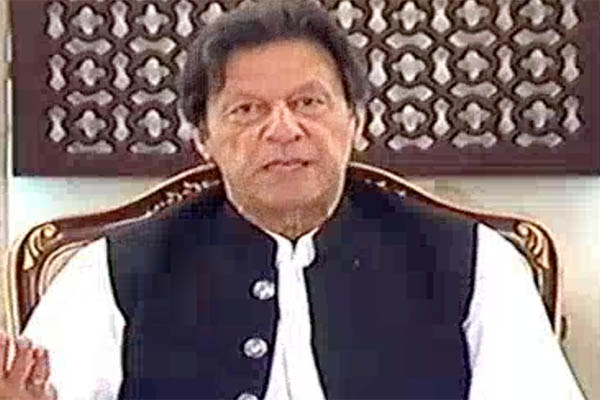
File photo
P.M. Khan says investors will not need to disclose sources of income for six more months; fixed-tax regime will continue till December 2021
Prime Minister Imran Khan on Thursday announced the government had decided to extend benefits to the construction sector that were set to expire on Dec. 31, including a fixed-tax regime and non-disclosure of sources of income for investors.
In a nationally televised speech following a weekly review meeting of high-priority economic sectors, he said that he wanted to give “good News” to the construction sector for the new year. “We have extended the fixed tax regime to Dec. 31, 2021,” he said, adding that this had been a “big demand” of the construction industry.
The prime minister said that projects worth Rs. 186 billion had been registered with the Federal Board of Revenue (FBR) to take benefit of incentives that the government had announced in April. There are a further projects worth Rs. 116 billion that are under process, he said, adding approval was pending for Rs. 136 billion of projects. Of the projects that have already commenced, he said construction projects worth Rs. 160 billion had been launched in Punjab. “This will generate economic activities equaling Rs. 1,500 billion in Punjab, creating 250,000 jobs,” he said, adding that similar projects were underway in Khyber-Pakhtunkhwa, Sindh and Balochistan.
Khan claimed that his government’s decision to reopen the construction sector while the majority of the country was still under lockdown to curb the spread of COVID-19 had helped protect the country from the kind of economic crises the rest of South Asia was facing. “The construction benefits have resulted in an increase in sales of cement, steel bars, and other related equipment,” he said.
On incentives provided by the government for low-income sectors of society, the prime minister said they had announced packages for low-cost housing for salaried people who could not afford to buy houses earlier. “Our first success was the foreclosure law. For the first time in Pakistan, banks are financing houses. Banks have agreed to allocate Rs. 378 billion for construction activity until Dec. 31, 2021,” he said.
Khan said subsidies for low-cost housing would continue, adding the interest rate for houses of 5 marlas would be fixed at 5 percent, while it would be 7 percent for houses of 10 marlas. “For the first 100,000 houses built under this scheme, [the government] will provide Rs. 300,000 per house,” he said, adding that the date for completion of construction projects had been extended to encourage more people to invest in the sector—it had earlier been capped at 2022, but would now end in 2023, the last year of the Pakistan Tehreek-e-Insaf-led government’s five-year tenure.
The prime minister also reiterated his government’s plans to create master plans for major cities to ensure sewerage and water supply issues could be properly addressed and the horizontal sprawl could be curtailed. He said the process of digitizing land-related data of Karachi, Lahore and Islamabad was also set for completion by August 2021.
